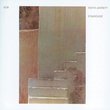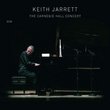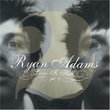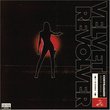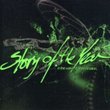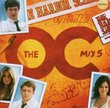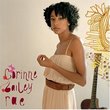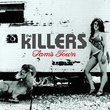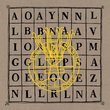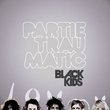| All Artists: Keith Jarrett Title: Jarrett: Book of Ways Members Wishing: 3 Total Copies: 0 Label: ECM Records Original Release Date: 1/1/2000 Re-Release Date: 5/9/2000 Album Type: Import, Box set Genres: Jazz, Pop, Classical Styles: Modern Postbebop, Bebop Number of Discs: 2 SwapaCD Credits: 2 UPC: 042283139626 |
Search - Keith Jarrett :: Jarrett: Book of Ways
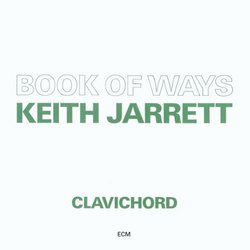 | Keith Jarrett Jarrett: Book of Ways Genres: Jazz, Pop, Classical
|
Larger Image |
CD DetailsSimilar CDs
Similarly Requested CDs
|
CD ReviewsBeautiful except for him. Fernand Raynaud | 06/07/2001 (3 out of 5 stars) "Wonderful music some of which sounds so much like Bach it is amazing. An then Keith Jarretts starts his moaning and groaning. He makes more noise than Glenn Gould and sounds like he has tourette syndrome or something. His noise ruins the record. Without his vocal nonsense, the music and performance is stunning and I wish it were available minus his obnoxious grunting and moaning." The Sonic equivalent of a Rainbow Roger Saxton | Las Cruces, New Mexico USA | 02/17/2003 (5 out of 5 stars) "While the strings of the harpsichord and the piano have a uniform sound even though the pitch is different for each string, the strings of the clavichord do not have a uniform sound. This creates a beautiful iridescence which at times creates the illusion of multiple instruments being played. Keith Jarrett takes advantage of all tonal resources of the clavichord on this magnificent album. As was mentioned by another reviewer, he exploits the full range of the clavichord and makes use of both the lyrical and precussive qualities of this instrument. The various sections range from feather light ornamented cantilenas in the middle and upper to registers to massive blocked chords in the middle and lower registers. Some of the pieces are in baroque style while others, such as Section Four of Part One, swing. Section Five of Part Two sounds like a percussion solo. In order to appreciate this music, it is necessary to give full attention to it. If one is willing to do that, this album will give an unending variety of aural pleasure. I must take issue with the reviewer who complained the album was ruined by Jarrtett's vocalizations. They occur in very few places; and when they do occur, they add to the music rather than detract from it as far as I am concerned. I would recommend this album to any serious listener of classical and jazz music." A very interesting experiment Fernand Raynaud | 10/18/2001 (4 out of 5 stars) "Two hours of clavichord music? Hmmm...
The clavichord is not an easy instrument to listen to, and some people do find it rather off-putting; the problematic intonation, the steely sound of the strings, the noise of the keys. Insert one Keith Jarrett, and you've got the makings of an odd experiment which deserves five stars for sheer chutzpah, and actually winds up being an uncanny testament to Jarrett's ever-inventive musical mind. There seems to actually be two clavichords on each track, as if he improvised one track, then overdubbed another on top, but I am not sure. Perhaps he played two at the same time, sitting in the middle, one hand on each at times. He uses the full range of the instrument (I'll bet Bach never imagined its percussive possibilities), and many different odd modes and styles. He runs the gamut from eastern-sounding meditative improvisations, to very Bach-like contrapuntal pieces. Although I am in the minority here, I must say I am pretty tired of 4 out of 5 anonymous reviewers saying any Jarrett album is ruined by his "annoying humming and singing". In the general scheme of things, who cares? The humming is for the most part miked out of earshot, and if it does annoy you, I would suggest taking it as some sort of method to his madness; the process by which musical thoughts go from his head to his hands, and also how he allows his music to "breathe". "Book of Ways" is a one-of-a-kind album; suitable for meditation, relaxation,...rainy days, and is also just as rewarding when given intense, focused listening. How many albums can you say that about? Take the risk: the rewards are many on this strange but evocative album." |

 Track Listings (10) - Disc #1
Track Listings (10) - Disc #1